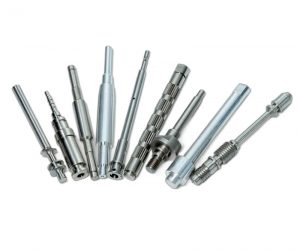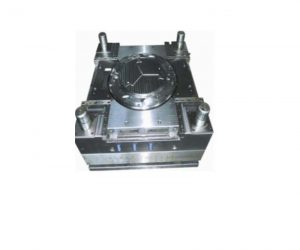Machining manufacturers constitute a linchpin in the contemporary industrial ecosystem. Their mastery of precision engineering, leveraging advanced techniques and cutting-edge technologies, underpins the creation of mission-critical components across diverse sectors, from aerospace and medical devices to consumer electronics and energy production. This analysis delves into the intricate processes, material science, and technological advancements that define this crucial industry, highlighting its profound impact on global manufacturing.
I. Precision Engineering: Beyond the Cutting Edge
The modern industrial landscape demands components exceeding mere functionality; they must exhibit exceptional precision, durability, and reliability under increasingly demanding operating conditions. Machining manufacturers meet this challenge through a sophisticated interplay of scientific understanding and artisanal skill. Their contribution extends beyond the creation of individual parts; they are integral to the optimization of entire supply chains, influencing design parameters, material selection, and ultimately, the performance of finished products. The relentless pursuit of enhanced performance, personalization, and sustainable manufacturing practices necessitates a continuous evolution of machining techniques and a deep understanding of material science – a dynamic landscape where machining manufacturers are at the forefront of innovation.
II. Advanced Machining Techniques: A Symphony of Precision
The core competency of machining manufacturers lies in their command of a diverse array of advanced machining techniques. These are not merely isolated processes but elements of a complex, integrated system requiring meticulous planning, execution, and quality control. The following represent key aspects:
- High-Speed Machining (HSM): HSM utilizes significantly increased spindle speeds and feed rates, enabling dramatic reductions in machining time and improved surface finish. However, this requires advanced tooling, robust machine structures, and sophisticated control systems to manage the resulting thermal stresses and vibrations.
- Five-Axis Machining: This technique allows for simultaneous manipulation of the workpiece along five axes, enabling the creation of complex, multi-faceted geometries previously unattainable through conventional methods. This significantly reduces the need for multiple setups, improving accuracy and efficiency.
- Fabricación aditiva Integration: La integración de additive manufacturing (3D printing) techniques with subtractive machining processes allows for the creation of hybrid components with optimized geometries and material properties. This synergistic approach expands the design space and opens new avenues for component optimization.
- Automated Guided Vehicles (AGVs) and Robotic Systems: The incorporation of AGVs and robotic systems streamlines material handling and machining processes, enhancing efficiency and reducing human error. This automation is particularly crucial in high-volume production environments.
The selection and application of these techniques are not arbitrary; they are dictated by a rigorous analysis of component specifications, material properties, and desired tolerances. This necessitates a deep understanding of both the theoretical underpinnings and practical limitations of each process.
III. Material Science and Selection: Optimizing Performance and Sustainability
The choice of material is paramount in determining the final performance and longevity of a machined component. Machining manufacturers possess a comprehensive understanding of the properties of various materials, including:
- Advanced Alloys: High-strength, low-weight alloys, such as titanium aluminides and nickel-based superalloys, are critical in aerospace and other high-performance applications. Machining these materials requires specialized tooling and techniques to manage their inherent challenges.
- High-Performance Polymers: Advanced polymers, including PEEK and ULTEM, offer exceptional chemical resistance, high temperature capabilities, and biocompatibility, making them suitable for demanding applications in the medical and chemical industries.
- Cerámica and Cermets: These materials exhibit exceptional hardness and wear resistance, making them ideal for cutting tools and components subjected to extreme abrasive conditions. However, their brittle nature necessitates careful machining techniques to avoid fracture.
- Compuestos: The use of composite materials, such as carbon fiber reinforced polymers (CFRP), allows for the creation of lightweight, high-strength components with tailored properties. Machining composites requires specialized tooling and techniques to avoid fiber damage and delamination.
The selection process goes beyond simply choosing the strongest or most durable material. It involves a comprehensive evaluation of factors such as cost, machinability, environmental impact, and long-term performance under anticipated operating conditions. This necessitates a sophisticated understanding of material science, coupled with access to advanced material characterization techniques.
Shaping the Future of Manufacturing
Machining manufacturers are not merely processors of raw materials; they are architects of precision, innovators in material science, and pioneers in advanced manufacturing techniques. Their expertise is fundamental to the progress of numerous industries, and their ongoing adaptation to evolving technological and economic landscapes ensures their continued critical role in shaping the future of global manufacturing. The relentless pursuit of higher precision, increased efficiency, and sustainable practices will continue to drive innovation within this dynamic and essential sector.
IV. Advanced Machining Technologies: A Complex Adaptive System
The machining industry's core competency resides not in individual tools, but in the intricate interplay of a complex adaptive system. This system, far from a simple aggregation of CNC machining centers and CMMs, is characterized by emergent properties arising from the dynamic interaction of sophisticated hardware, advanced software algorithms, and sophisticated data analytics. The seamless integration of these elements—from the predictive maintenance algorithms embedded within intelligent tool management systems to the real-time process optimization driven by machine learning—defines the cutting edge. Additive manufacturing, no longer a peripheral technology, is deeply interwoven, enabling hybrid manufacturing processes that blur the lines between subtractive and additive techniques. This necessitates a paradigm shift from traditional manufacturing models to a more holistic, systems-level approach to process design and control. The resulting operational efficiency and precision redefine the boundaries of what's achievable in high-precision component fabrication.
The Technological Arsenal: Beyond the Obvious
The arsenal of the modern machining manufacturer extends far beyond the readily apparent. While CNC machining centers remain central, their capabilities are amplified by:
- High-bandwidth, real-time data acquisition and analysis: This transcends simple tool monitoring; it encompasses the entire machining process, feeding predictive models that anticipate and mitigate potential failures before they occur.
- AI-driven process optimization: Machine learning algorithms analyze vast datasets to identify subtle patterns and anomalies, enabling continuous improvement of machining parameters and the minimization of scrap rates.
- Digital twin technology: Virtual representations of the machining process allow for simulation and optimization before physical execution, reducing lead times and minimizing costly errors.
- Advanced sensor integration: Beyond traditional sensors, the integration of advanced technologies like acoustic emission monitoring and laser-based vibration analysis provides granular insights into process dynamics.
- Automated quality control systems: These systems, incorporating advanced vision systems and AI-powered defect detection, eliminate human subjectivity and ensure consistent quality across all production runs.
This interconnected technological ecosystem fosters a level of precision and efficiency unattainable through individual component optimization.
V. Precision and Control: A Deterministic Approach to Stochastic Processes
The machining industry's pursuit of precision is not merely a matter of tight tolerances; it's a sophisticated management of inherent stochasticity within the machining process. Achieving consistent, high-quality components necessitates a deterministic approach to inherently probabilistic events. This demands:
- Statistical Process Control (SPC) enhancements: Traditional SPC is insufficient; advanced statistical methods, incorporating Bayesian inference and robust regression techniques, are necessary to account for complex interactions and non-linear effects.
- Predictive maintenance strategies: This involves not merely reacting to failures but proactively anticipating and mitigating them through advanced sensor data analysis and predictive modeling.
- Closed-loop control systems: Real-time feedback loops, integrating sensor data with adaptive control algorithms, dynamically adjust machining parameters to compensate for variations in material properties, tool wear, and environmental conditions.
- Multi-sensor data fusion: Integrating data from multiple sensors provides a more comprehensive understanding of the machining process, leading to more accurate predictions and more effective control.
- Advanced metrology techniques: Beyond CMMs, advanced techniques like laser scanning and white-light interferometry provide sub-micron level accuracy and detailed surface characterization.
The successful implementation of these strategies transforms the machining process from a largely unpredictable system into a precisely controlled and highly efficient one.
VI. Quality Assurance: A Proactive, Data-Driven Approach
Quality assurance in modern machining is not a reactive process; it's a proactive, data-driven approach embedded throughout the entire manufacturing lifecycle. This involves:
- Design for Manufacturing (DFM) principles: Integrating quality considerations into the design phase minimizes potential defects and simplifies manufacturing processes.
- Material characterization and traceability: Rigorous material testing and comprehensive documentation ensure consistent material properties throughout the production process.
- Automated inspection and testing: This eliminates human error and provides objective, repeatable measurements.
- Data-driven quality control: Continuous monitoring and analysis of process data identify trends and anomalies, enabling proactive intervention to prevent defects.
- Blockchain technology for traceability: This technology provides an immutable record of the entire manufacturing process, enhancing transparency and accountability.
Through the seamless integration of these advanced technologies and methodologies, the machining industry delivers components not merely meeting, but exceeding, the most stringent quality standards, solidifying its position as a cornerstone of modern industrial innovation.
VII. Manufacturing Intelligence: A Fractal Analysis of Machining's Algorithmic Evolution
The machining industry's digital metamorphosis transcends mere automation; it represents a complex, self-similar evolution, where data-driven insights recursively refine processes at multiple scales. Advanced analytics are no longer peripheral; they constitute the very fabric of high-precision component creation. Real-time monitoring isn't simply about observation; it's about predictive modeling, anticipating bottlenecks and optimizing tool lifecycles with machine learning algorithms operating at the edge of chaos. This fractal intelligence permeates design, fabrication, and delivery, creating a dynamic system capable of responding to the unpredictable demands of a volatile global economy. The emergent properties of this system—enhanced precision, resilience, and adaptability—are far greater than the sum of their constituent technologies.
The Impact of Algorithmic Machining on Production Paradigms
Manufacturing intelligence's impact is not incremental; it's transformative. The benefits are not merely additive but synergistic, creating a cascading effect of improvement:
- Enhanced Process Control: Sophisticated sensor networks, coupled with real-time data fusion and advanced control algorithms, enable dynamic process adjustments, minimizing deviations from optimal trajectories and mitigating the propagation of errors. This transcends simple feedback loops; it involves anticipatory control based on predictive models.
- Predictive Maintenance: Machine learning, employing deep learning architectures and anomaly detection techniques, moves beyond simple predictive maintenance to prescriptive maintenance, suggesting optimal interventions and resource allocation to minimize downtime and maximize equipment lifespan.
- Quality Optimization: AI-powered quality control transcends simple inspection; it involves real-time, in-process quality assurance, integrating predictive models to proactively address potential defects before they manifest. This necessitates a paradigm shift towards a zero-defect manufacturing philosophy.
- Autonomous Workflow Orchestration: The integration of intelligent agents and robotic process automation is not just about automating tasks; it's about creating self-organizing production systems capable of adapting to unforeseen circumstances and optimizing resource allocation in real-time.
- Continuous Improvement via Evolutionary Algorithms: Data-driven optimization is not static; it's an ongoing evolutionary process. Employing genetic algorithms and other optimization techniques allows for the continuous refinement of machining parameters, leading to exponential improvements in efficiency and productivity.
The future of machining is not simply digital; it's algorithmic, characterized by self-learning, self-optimizing systems capable of navigating the complexities of a rapidly changing global landscape.
VIII. Sustainable Machining: Decoupling Production from Environmental Degradation
The imperative for sustainable manufacturing is not merely an ethical consideration; it's a strategic necessity. The machining industry's environmental impact must be decoupled from its economic output. This requires a radical shift towards circular economy principles, moving beyond simple waste reduction to a holistic approach encompassing:
- Closed-Loop Material Flows: The implementation of advanced material recovery techniques, including automated sorting and recycling systems, enables the continuous reuse of materials, minimizing waste and reducing reliance on virgin resources.
- Energy Optimization via AI: AI-powered energy management systems optimize energy consumption throughout the machining process, identifying and eliminating inefficiencies. The integration of renewable energy sources further reduces the carbon footprint.
- Precision Machining for Minimal Material Waste: Advanced machining techniques, guided by AI-powered process optimization, minimize material waste by maximizing material utilization and precision.
- Lifecycle Assessment and Design for Disassembly: A holistic lifecycle assessment, integrated into the design process, ensures that components are designed for ease of disassembly and recycling, facilitating a truly circular manufacturing system.
The transition to sustainable machining is not a linear path; it's a complex, iterative process requiring collaboration across the entire value chain.
IX. Economic Geopolitics of Machining: A Critical Infrastructure Analysis
The machining industry's economic significance transcends simple revenue generation; it represents a critical infrastructure supporting countless sectors. Its influence extends beyond national borders, shaping global supply chains and influencing geopolitical dynamics. The demand for high-precision components fuels economic growth, creating high-skilled jobs and driving technological innovation. However, this influence is not evenly distributed, creating regional disparities and vulnerabilities.
The Economic Power Dynamics of Advanced Machining
The economic benefits of machining are multifaceted:
- High-Value Manufacturing: Machining enables the creation of high-value-added components, driving economic growth and competitiveness.
- Technological Innovation Hubs: Clusters of machining expertise foster innovation and technological advancements, attracting investment and talent.
- Global Supply Chain Resilience: A robust machining sector is crucial for ensuring the resilience of global supply chains, mitigating risks associated with geopolitical instability.
- National Security Implications: The production of critical components for defense and aerospace industries highlights the strategic importance of machining capabilities.
X. Innovation Ecosystems: The Emergence of Machining Clusters
The machining industry's future is not determined by individual companies; it's shaped by the dynamic interplay within innovation ecosystems. These clusters, characterized by dense networks of collaboration and knowledge sharing, are crucial for driving technological advancements and fostering competitiveness. The emergence of new geographic hubs reflects shifting geopolitical dynamics and evolving technological landscapes. The success of these ecosystems depends on factors such as:
- Collaboration and Knowledge Sharing: Effective communication and collaboration between industry, academia, and government are essential for driving innovation.
- Access to Talent and Resources: Attracting and retaining skilled workers, securing access to advanced technologies, and ensuring adequate funding are crucial for ecosystem growth.
- Regulatory Frameworks: Supportive government policies and regulations are essential for fostering innovation and competitiveness.
The future of machining lies not in isolated advancements but in the synergistic power of interconnected innovation ecosystems.
Frequently Asked Questions (FAQs)
- What are the key quality control measures employed in precision parts manufacturing?
Precision parts manufacturers use a variety of quality control methods to ensure they consistently produce high-performance components. These include:
- Statistical process control (SPC) to monitor and optimize manufacturing processes.
- In-process inspection using automated sensors and measurement systems.
- Final product validation through rigorous testing and evaluation.
- Robust quality management systems, like ISO 9001, to foster a culture of continuous improvement.
- Meticulous documentation and traceability of quality data for thorough analysis and improvement.
By integrating these advanced quality assurance strategies, precision parts producers can deliver components that meet or exceed strict industry standards.
- How do precision parts manufacturers collaborate with their customers to optimize part design and engineering?
Precision parts manufacturers work closely with their customers to ensure the best design and engineering of parts for efficient subtractive manufacturing. Key areas of collaboration include:
- Part geometry: Ensuring the part's shape and features match the capabilities of the turning process.
- Material selection: Choosing the right material based on strength, durability, and machinability.
- Tolerances and surface finish: Determining the required dimensional accuracy and surface quality.
- Accessibility and clearance: Designing the part for easy tool access and handling.
- Part orientation: Optimizing workpiece orientation for better machining efficiency and quality.
By leveraging their deep understanding of subtractive manufacturing principles, precision parts manufacturers provide valuable design guidance and engineering support, enabling the production of high-quality, cost-effective components.
- What are some of the advanced cutting tool materials and coatings used in precision parts manufacturing, and how do they enhance performance?
Precision parts manufacturers use various advanced cutting tool materials and coatings to improve performance and capabilities. These include:
- Carbide: A hard, wear-resistant material with excellent cutting performance and edge retention.
- Ceramic: Offers great heat and wear resistance, allowing higher cutting speeds and productivity.
- Polycrystalline diamond (PCD): Provides unmatched hardness and wear resistance for machining abrasive materials.
- Titanio aluminum nitride (TiAlN) coatings: Enhance tool life and performance with better heat and abrasion resistance.
By carefully selecting and maintaining the optimal cutting tools, precision parts manufacturers achieve new levels of efficiency, quality, and cost-effectiveness.
- How is the precision parts industry addressing sustainability and environmental responsibility?
The precision parts industry is leading the way in sustainability and environmental responsibility. Key strategies include:
- Embracing circular economy principles, such as recycling and reusing metal y plastic materials.
- Optimizing energy-intensive production processes to reduce the environmental footprint.
- Integrating advanced waste management technologies to minimize waste and maximize resource efficiency.
- Exploring renewable energy sources to power manufacturing facilities.
- Developing advanced material recovery techniques for continuous repurposing of critical components.
By adopting these practices, precision parts manufacturers are paving the way for a more environmentally responsible future, where advanced components can be reintegrated into the manufacturing workflow, reducing the burden on natural resources.
- What are some of the key emerging trends and innovations shaping the future of precision parts manufacturing?
The precision parts industry is at the forefront of technological transformation, with several emerging trends and innovations set to shape its future:
- Increased integration of advanced automation and digital technologies, such as CNC machining, robotic material handling, and data analytics.
- Adoption of additive manufacturing techniques for producing customized, geometrically complex parts.
- Growing emphasis on sustainability and environmental responsibility, driving the implementation of circular economy principles and renewable energy solutions.
- Rising demand for personalization and customization, requiring precision parts manufacturers to adapt their workflows and capabilities.
- Continued advancements in cutting tool materials and coatings to enhance performance, efficiency, and cost-effectiveness.
As the global manufacturing landscape evolves, the precision parts industry will play a crucial role in driving innovation, meeting changing customer demands, and shaping the future of advanced manufacturing.


